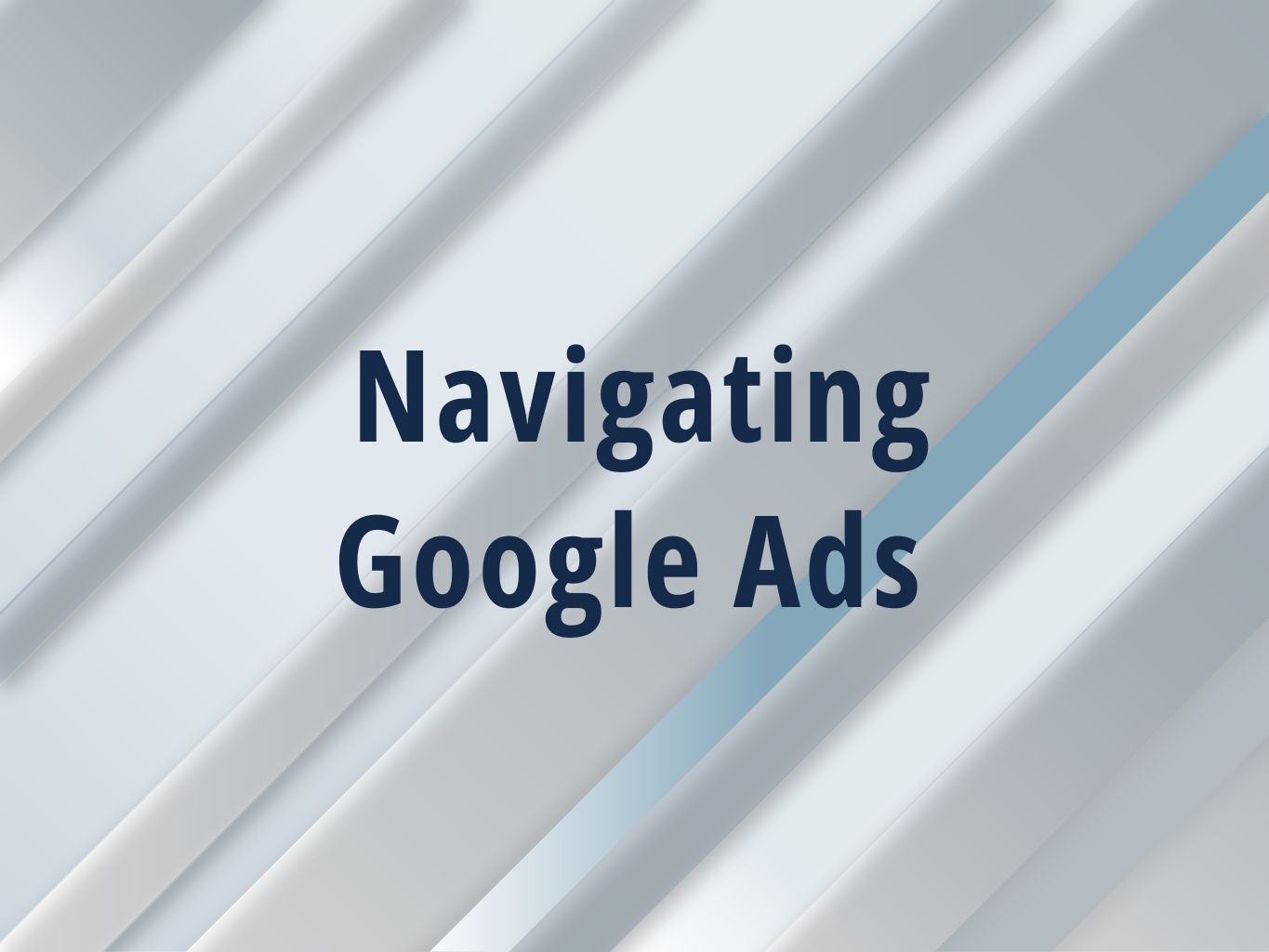Navigating Google Ads
Understanding Verticals and Industry Restrictions
Google Ads is a powerful tool that allows businesses to reach their target audience effectively. However, not all industries and business types can freely advertise on the platform. In this blog post, we will explore the concept of verticals in relation to Google Ads and discuss the various industries that face unique challenges and restrictions. Understanding these nuances can help businesses make informed decisions and develop effective advertising strategies while navigating Google Ads.
Exploring Verticals:
In the context of Google Ads, verticals refer to different types of businesses and industries. Each vertical may have specific considerations and requirements when it comes to running ads. For example, businesses in the sports and entertainment industry are categorized as verticals due to their distinct characteristics and specialties. Identifying the relevant vertical for your business is crucial as it influences the types of ads you can run and the strategies you need to implement.
Industry-Specific Restrictions:
Running Google Ads involves being aware of various industry-specific restrictions and guidelines. Some industries have little nuances that can impact your advertising efforts. For instance, certain businesses such as sex shops face location-based restrictions. Text-based ads for a sex shop may be allowed in one country but prohibited in another. It is essential to check with Google Ads and ensure compliance with their policies and guidelines
Here are some industries that have notable restrictions:
- Housing: In order to prevent discrimination and ensure fair access to housing, Google restricts certain targeting options and keywords related to real estate.
- Medical and Pharmaceuticals: Advertising certain medical procedures, prescription drugs, or products like Botox requires special permission from Google. Strict regulations are in place to maintain the safety and integrity of health-related content.
- Gambling: Due to the potential for abuse and legal complexities, gambling-related advertising is heavily regulated. Businesses in this industry face stringent restrictions and may need to explore alternative advertising channels.
- Alcohol, Tobacco, and Firearms: Advertising for products like alcohol, tobacco, or firearms is subject to strict limitations and compliance with local laws and regulations. Google’s policies aim to prevent underage exposure and comply with legal requirements.
Content Restrictions:
Apart from industry-specific restrictions, Google Ads also has general content restrictions. These restrictions aim to ensure a safe and appropriate user experience.
Here are some content categories with notable restrictions:
- Sexual Content: Explicit or adult-oriented content is strictly prohibited on Google Ads. Advertisements must adhere to community standards and be family-friendly.
- Counterfeit Goods: Advertising counterfeit or replica products is not allowed on the platform. Businesses must sell authentic and legitimate products to comply with Google’s policies.
- Inappropriate Content: Ads that promote hate speech, violence, or discriminatory behaviour are strictly prohibited. Advertisements should adhere to ethical standards and promote inclusivity.
- Dangerous Goods: Advertising for hazardous substances, explosives, or any other potentially dangerous products is restricted. Google aims to protect users from harm and prevent misuse of such products.
Essential Website Pages To Have & Why
While working with Google Ads, you may encounter policy challenges specific to certain industries. For example, solicitation of funds, free desktop software, and call directories are among the restricted ad categories. Additionally, industries like ticketing, housing, and high sugar, salt, and food beverages have their own sets of rules and regulations that need to be followed.
An Example: Ticketing Restrictions:
One industry that often faces hurdles when running Google Ads is ticketing. To prevent ticket scalping and ensure consumer protection, Google Ads has implemented policies to regulate the sale of third-party tickets. For event organizers advertising their ticket sales, it is important to be aware of the verification process and the guidelines associated with it. Failure to comply with these policies may lead to disapproval of ads.
Understanding Housing Restrictions:
Another industry with specific restrictions is housing. Due to past instances of discrimination, Google Ads has guidelines to prevent discriminatory practices in housing advertisements. Restrictions may include limitations on certain keywords and targeting options. Businesses in the housing industry should be cautious when creating ads and ensure compliance with Google’s policies to avoid disapproval
Overcoming Disapproval Challenges:
It is not uncommon to receive disapproval notifications for certain ads due to policy violations. These disapprovals can occur for various reasons, such as the use of restricted words or targeting options. However, it is possible to appeal disapprovals and communicate with Google Ads support to address the issues and rectify them.
Conclusion:
Google Ads provides a powerful platform for businesses to advertise and reach their target audience effectively. However, it is essential to understand the concept of verticals and the specific industry restrictions that may apply. By being aware of these nuances and adhering to Google Ads’ policies, businesses can develop successful advertising strategies and overcome challenges associated with their industry. Stay informed, adapt to the guidelines, and make the most of Google Ads to boost your business’s online presence and reach.
Reach out to us for further information regarding navigating Google ads, and what we could to help.

